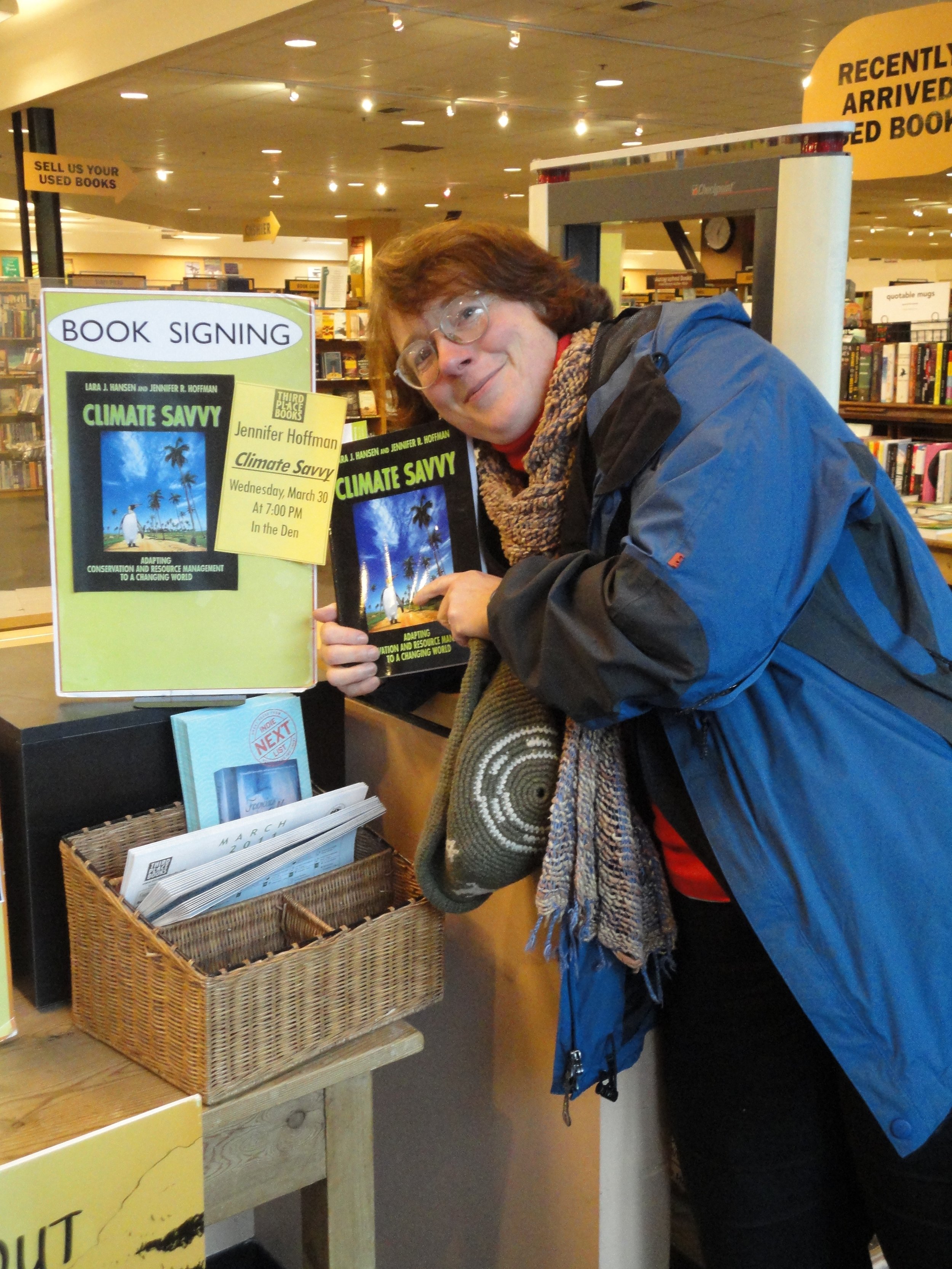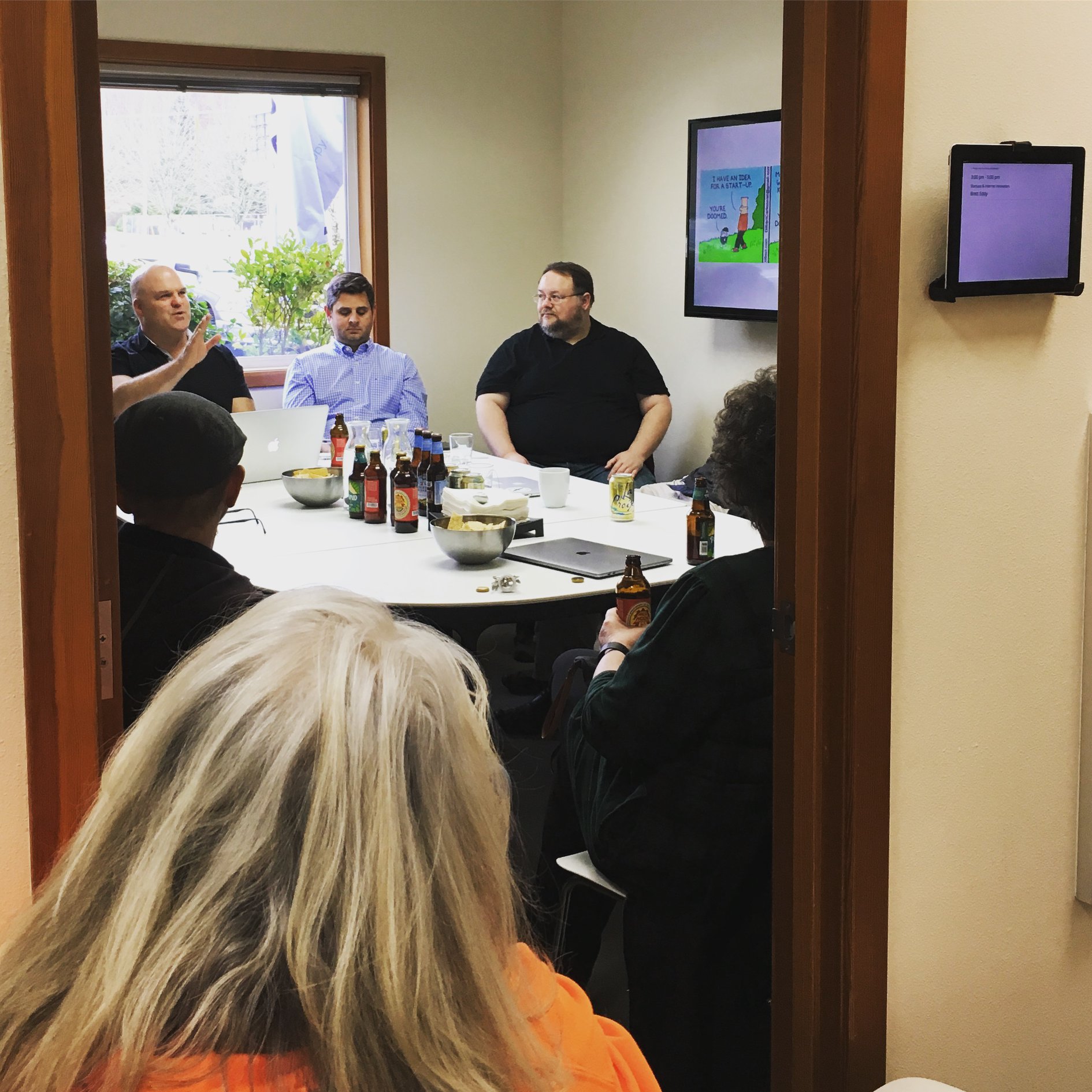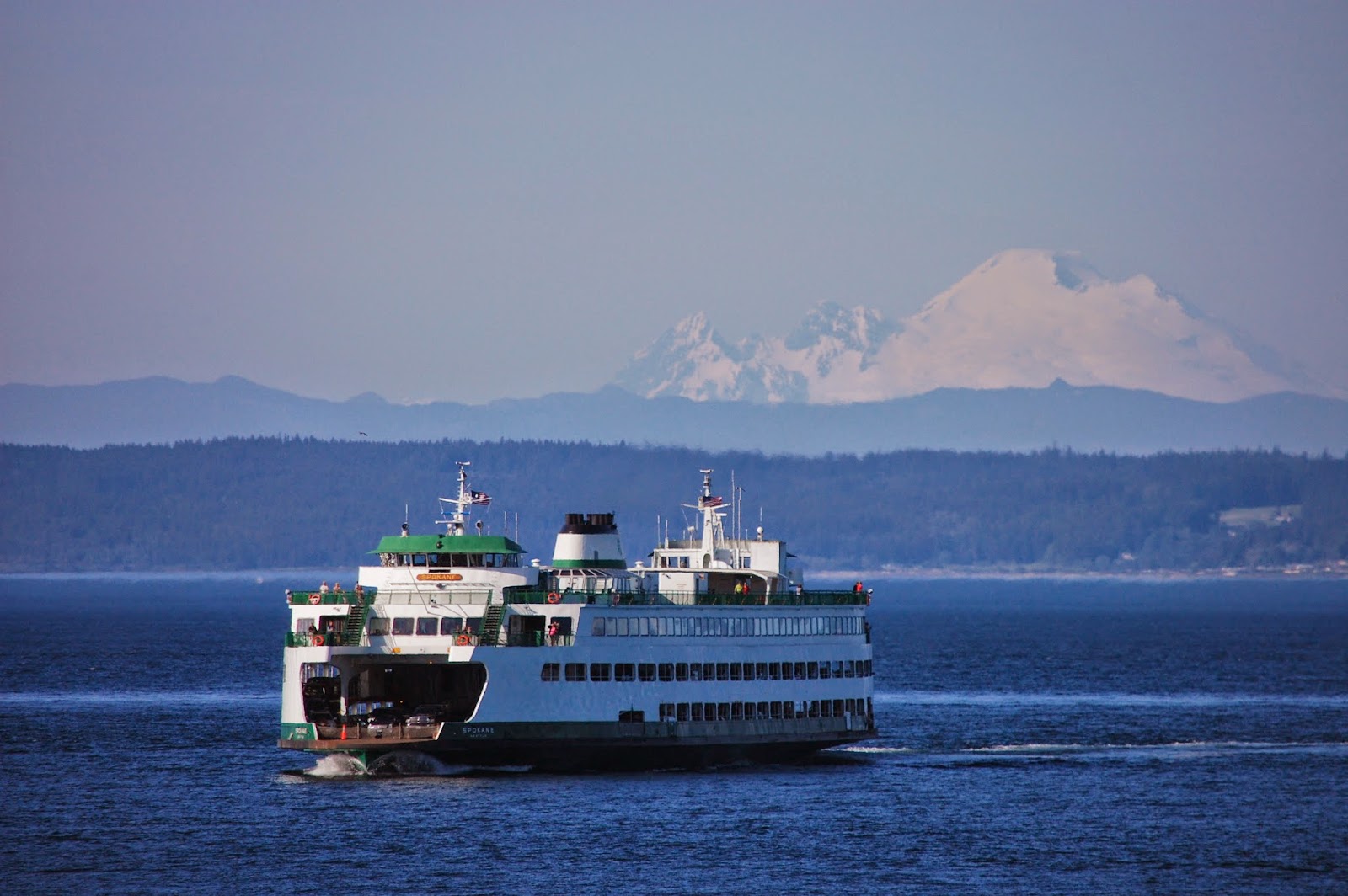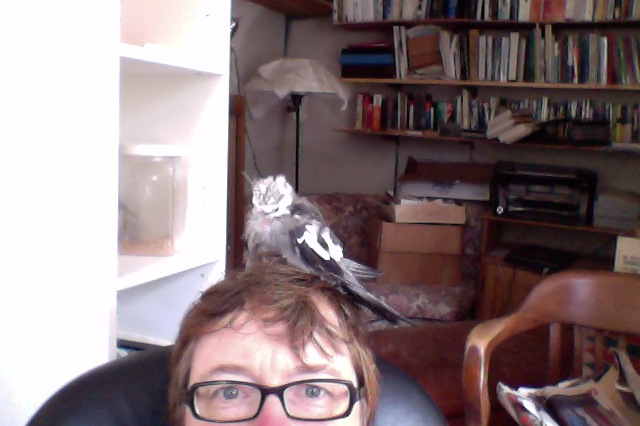Vibist Jennie Hoffman is an accomplished researcher, author, nonprofit founder, and climate adaptation consultant, helping to connect science with management and policy.
When Jennie walked into Vibe for the first time, we were instantly drawn to her energy, enthusiasm and passion for life. As we’ve gotten to know her more, we’re also massively impressed by her superpower as someone who can make even the most complex of problems seem solvable.
A Poulsbo resident, Jennie began studying the effects of global change in 1992 as a toxicologist, carrying this perspective to the University of Washington where she earned a Ph.D. in marine ecology. While she began graduate school with the intention of pursuing an academic career, she eventually decided she’d rather save the world.
We’re OK with that (superpowers, remember?). And as we celebrate Earth Month this April, we couldn’t think of anyone better to share their perspective on all things climate, here in Kitsap and beyond.
Vibe: Jennie, you’ve been working in the world of climate change adaptation for over a decade, in the US and internationally. What was that ‘ah-ha’ moment when you knew that this was an area of work that you felt passionate about?
Jennie: There wasn’t a single “ah-ha” moment. I got interested in climate change effects on organisms and ecosystems way back in my days as a toxicologist and marine biologist, but I’d say my journey to becoming an “adaptationista” began when I was offered a great opportunity to work with a friend on climate change adaptation at the global level.
I’ve always cared about the well-being of people and the environment, and this work addressed both. The more I worked and talked with people around the globe, the clearer the myriad challenges posed climate change became. It’s certainly not the only challenge facing people and natural systems, and it’s not always the most critical challenge, but its influences are so pervasive!
People seemed to feel more perplexed by climate change than by many other stressors, perhaps because it was a newer issue, or perhaps because it was generally presented as a global rather than as a local threat. Whatever the case, I found that I was able to help people think through the problem, bring global changes into local or regional contexts, and to come up with solutions. Boy does it feel good to make a difference for other people! Plus, the people I worked with on climate adaptation were so passionate about making a difference—that was really inspiring.
Vibe: In your book, Climate Savvy, you talk about how climate change can be used an an opportunity to work toward a more robust future. What do you mean by that?
Jennie: It’s easy to get stuck doing things the way we’ve always done them; sometimes it takes a major challenge like climate change to get us out of that rut. I had a conversation a few years back with a city planner about how 90% of his city was within the 100-year flood plain and he had no way locate emergency services, schools, or other important buildings out of harm’s way.
data-animation-override>
“Taking our vision for our communities and our core values as a starting point, we can then consider what could happen in terms of climate change and position ourselves and our community to avoid negative consequence and to take advantage of opportunities.”
He said he wished city planners 50 or 75 years ago had made decisions that left him with better options. His hope was that 50 or 75 years from now people wouldn’t be looking back at him thinking the same thing!
Thinking about climate change had gotten him thinking about future planners, future residents of his town, and what he could do now that would keep his city safe, productive, and a great place to live for the long haul.
You don’t have to know exactly what’s going to happen in terms of the climate or anything else to make good plans. We don’t know when a tsunami might hit the coast of Washington, or when or where a major earthquake will hit our region, but we have plans and policies in place to manage those risks.
Because climatic changes influence so many aspects of our lives—changes in the frequency and severity of floods, droughts, and wildfires can affect food costs and availability, access to wilderness for recreation, and people’s safety in their own homes, for example—bringing climate change into our planning pushes us to think about how to create systems that are resilient in the face all sorts of challenges.
What if summers become a lot warmer and dryer? Should we think about different crops we could grow to sustain our local food system? Be ready for more tourists? Improve water efficiency across the board so we’re less likely to be faced with restrictions or conflicts if we’re hit with some particularly dry years? Taking our vision for our communities and our core values as a starting point, we can then consider what could happen in terms of climate change and position ourselves and our community to avoid negative consequence and to take advantage of opportunities.
Vibe: You do a lot of training across the country for people from federal, state, tribal, municipal and nonprofit organizations, all around integrating climate change into their work. Do you have a favorite story from a training session that you could share? Are there any particularly memorable discussions, people or ideas that have come out of your trainings?
Jennie: One of my favorite comments from a participant in a vulnerability assessment training was “I still don’t know what I’m going to do, but now I’m confident that I can do it.” To me, that’s the key! There’s no magic bullet for climate change adaptation, so folks need to be comfortable thinking about how to bring climate considerations into their plans and decisions.
Another experience I’ve had is when people come in wanting to debate the science of climate change, to argue about what’s causing it, about how certain we are. I enjoy those conversations because it gets right to the heart of the issue: what do we need to know and how certain do we need to be before we do anything? It’s like a lot of other risk management situations, and helping people to recognize that sidesteps some of the overly politicized aspects of climate change.
Vibe: Talk to us about EcoAdapt, the nonprofit that you co-founded back in 2008. Why did you start it? What have the greatest successes been? What have you been doing since you moved on?
Jennie: Some friends and I had been working at a large environmental non-profit and had gotten pretty disillusioned with it. Success was measured in terms of fundraising and image rather than progress on environmental on social issues, and we just weren’t getting the support and buy-in we needed from our organization. Also, it felt strange to be focused on climate change and yet be flying all over the globe building up a massive carbon footprint, to be focused on other places and people but not doing much here at home.
data-animation-override>
“Take a conscious approach to your life and work. Instead of saying “I have to” say “I’m choosing to,” and then ask yourself why you’re making the choices you make.”
So we decided to start our own adaptation-focused organization with a focus on North America. It was an incredible experience, building a non-profit organization from start-up to a million-dollar budget in just a few years. EcoAdapt has become a leader in climate change adaptation.
We developed the Climate Adaptation Knowledge Exchange (CAKE), a geo-referenced repository of adaptation case studies and resources that’s become a key resource for the U.S. National Climate Assessment. We also started the bi-annual National Adaptation Forum, which is attended by hundreds of people. And the EcoAdapt team is amazing. It was a hard decision to leave the group, but I knew I had more to offer than I was able to at EcoAdapt.
Since leaving, I’ve focused on building out three aspects of my work: training and capacity-building around climate-informed decision making, research and synthesis around specific needs or topics, and targeted consulting. I’m particularly excited about some projects focused on integrating climate considerations into existing decision and planning pathways related to the Endangered Species Act and to management plans for federally controlled resources.
Vibe: What role does technology play in how you run and grow your business, and in the world of climate adaptation more generally?
Jennie: Because I work with people all over the country (and internationally sometimes as well), I rely on a range of programs to stay in touch, share documents, give presentations, and host webinars. I also lead the occasional on-line training. While the technology I use isn’t fancy, it’s essential to my business.
In the world of climate adaptation more generally, technology is a double-edged sword. There can be a tendency to focus on technological solutions to the exclusion of people-based or nature-based solutions. For example, responses to decreasing supplies of fresh water could include increased water efficiency and conservation (people-focused), increased aquifer recharge through wetland restoration, protection of recharge areas, and minimizing impervious surface (nature-based), and desalination plants (technology-based).
Desalination plants may have their place, but they cost a lot more than the other options, create more localized environmental problems than the other options, and because of their carbon footprint they actually contribute to climate change and the very problem of water insecurity!
That said, technology can be really helpful for decreasing vulnerability to climate change. For example, all of the technology behind improved weather forecasts and climate models, such as satellites and supercomputers, allows farmers to make better decisions about what crops and equipment to invest in and municipal planners to make better decisions about infrastructure design and location.
Vibe: Your very first experience at Vibe was on a Free First Friday, when you also opted to join in for one of our most popular monthly meetups, Startups & Internet Innovators, hosted by Brett Eddy with Ignition Garage. What were some of your first impressions of the community here?
Jennie: It was love at first sight! I run my business out of my home, which is great in terms of flexibility but not so great in terms of face-to-face interaction. I’ve spent some quality time working at local cafes (hello, Caffe Cocina and Coffee Oasis!) and various public libraries, but that’s not the same as being in a coworking space.
The Startup & Internet Innovators meetup is free and open to public on the 1st Friday of every month from 3 – 5pm at Vibe.
Vibe was exactly what I was looking for—close to home and full of friendly people working in a diversity of industries interested in sharing their experiences. I loved that there were several different kinds of chairs and that there was a way for people to vote on which one they liked! And Brett’s meetup was amazing.
I wanted a coworking situation where I could feel pushed and supported and inspired by people working to create successful businesses, be they sole proprietorships or something more, and Brett’s meet-up nailed it.
Vibe: Talk to us about the clients you serve. Are there any favorite stories you can share?
Jennie: I work with a diversity of clients, which I enjoy. Some clients are super-smart academically-minded conservation biologists. Others are community members with little formal training in science. My clients come from county, state, and federal governments, from the military and from natural resource agencies, from tribes, from industry—it’s great!
Part of what I like about working with a wide range of people is the insight it gives me into the wide array of values and viewpoints in our human family. When I was working on a project in Madagascar someone from an international aid agency had complained to me that locals weren’t using the solar cookstoves the agency was providing.
She couldn’t understand why this was, given that the cookstoves solved so many problems—they meant people didn’t have to hike for miles to get wood and didn’t have to deal with the poor air quality associated with turning that wood into charcoal, and if people used solar rather than charcoal cookstoves it would make such a difference in terms of saving and restoring Madagascar’s forests!
When I mentioned this to someone who’d been living in Madagascar for decades, he laughed and said the problem was that you couldn’t burn your rice in a solar cookstove. Say what??? It turns out that in Madagascar burnt rice water, knows as ranovola, is an incredibly popular beverage. You cook your rice, scoop out what you can, then add water to the burnt rice that’s left on the bottom of the pan and let it sit for a few hours. So, any stove that makes it hard to burn your rice is a non-starter there.
Vibe: If you could offer one piece of advice to families / businesses / cities that are wishing to be more environmentally savvy in their day-to-day, what would it be?
Jennie: Take a conscious approach to your life and work. Instead of saying “I have to” say “I’m choosing to,” and then ask yourself why you’re making the choices you make. For example, lots of event organizers feel like they “have to” provide bottled water for guests and speakers. Why is that? Why not provide pitchers of water instead? Or if you feel like you “have to” buy single-serving sizes of yogurt, snackables, or other individually-packaged food items—why is that? Is it the convenience? The fact that your kids prefer it that way? What could you do to maintain the convenience or the kids’ buy-in that didn’t send pounds and pounds of plastic into landfills?
I have friends who’ve gotten bento boxes for their kids’ lunches, and their kids love it. And what does it say about your life if you “don’t have time” to put yogurt from a bigger container into a smaller container that you take for lunch? We all make trade-offs all the time, so the idea isn’t to be perfect. The idea is to be aware of the tradeoffs you’re making, and to think about how to live in ways that are a better match for your own ideals.
data-animation-override>
“I get energized by being around people who are actively creating or running their own small businesses. I also get good tips about local resources and how to run my own business in a way that works for me. I think the West Sound has been waiting for something like Vibe to catalyze connections and to make this a viable place to be an entrepreneur.”
Vibe: How do you think being at Vibe Coworks will impact your business, and the world of work for local creatives, entrepreneurs and remote workers in Poulsbo and throughout the West Sound Region?
Jennie: Jim Rohn wrote that “You are the average of the five people you most associate with.” Being at Vibe gets me spending more time with people who are working to build local and regional community, who are enthusiastic about supporting others, and who are taking less traditional approaches to their work lives. It’s inspiring!
I get energized by being around people who are actively creating or running their own small businesses. I also get good tips about local resources and how to run my own business in a way that works for me. I think the West Sound has been waiting for something like Vibe to catalyze connections and to make this a viable place to be an entrepreneur.
Vibe: What’s your favorite thing about Poulsbo/Kitsap/the Pacific Northwest?
Jennie: I love taking ferries, and seeing Mount Baker and Mount Rainier from the ferry. I love all the yummy berries you can pick—the salmon berries, thimble berries, native blackberries, salal, evergreen huckleberries, red huckleberries. This being spring, I’ve been enjoying the flowers—trillium, avalanche lilies, fritillaria, the native plums. I love that Kitsap is a “purple” county, i.e. that it’s politically mixed. I love the salmon. I love the vibrant Native American presence and how this connects us to the deeper history of this region.
Vibe: What do you see as being the most critical climate adaptation opportunity facing us here in our county?
Jennie: Keep it local. Having abundant local food means we’re less vulnerable to big droughts and floods elsewhere, and reduces our carbon footprint. Locally generated power (e.g. rooftop solar) means we’re less vulnerable to power disruptions from big storms, droughts, or other factors. And strengthening local and regional community makes it more possible to tackle big challenges that might come our way.
As a coastal county we do need to think about sea level rise and how to balance the desire to protect property from erosion with the need for healthy marine ecosystems. There’s been a tendency to put up seawalls or to otherwise harden shorelines to limit erosion, but this isn’t necessarily the best approach. Costs just keep increasing over time, and hard shorelines reduce habitat for crabs and shellfish as well as the forage fish that are key to healthy salmon populations.
Keeping infrastructure out of erosion zones in the first place is a great option, and counties, cities, and the State can do a lot in terms of regulations and incentives to make this happen. Another option is green shorelines (e.g. Green Shores for Homes) which balance infrastructure protection with ecosystem health and aesthetics. Keeping healthy intertidal ecosystems supports the local food system and keeps our coasts beautiful!
Vibe: What are you passionate about, beyond work?
Jennie: Gardening! Hiking! Local agriculture! Social justice! Helping people in need! Dogs! I recently started volunteering with North Kitsap Fishline, which is an AMAZING organization.




